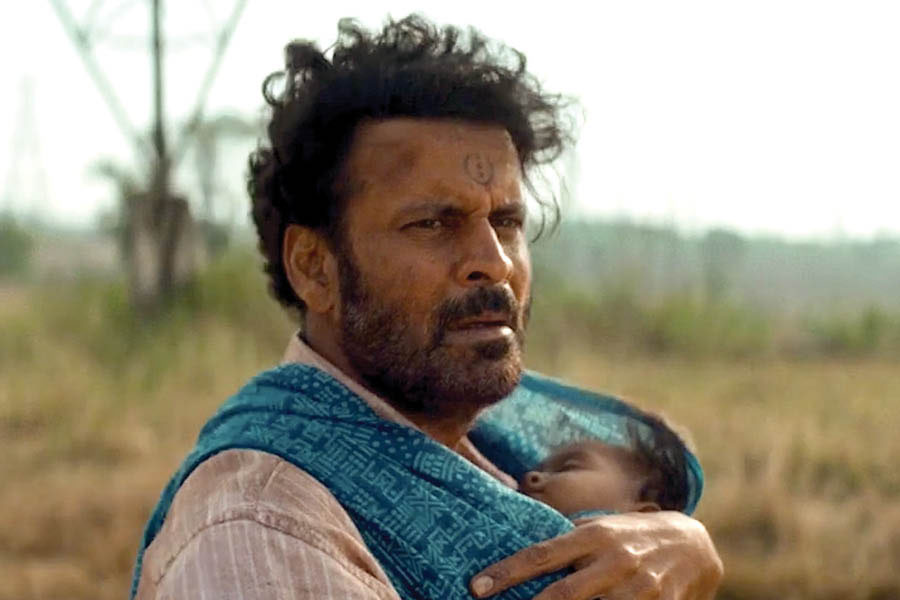Sandeep Reddy Vanga’s Animal and Devashish Makhija’s Joram couldn’t be more different in terms of their size, scale or sensibility. Yet, in the face of the massive box-office onslaught of the Ranbir Kapoor-starrer, Joram — starring Manoj Bajpayee as a haunted and hunted man — received widespread critical acclaim in its short spell at the theatres.
In the garb of a survival thriller, Joram serves up a slice of life where harsh social structures ensure an interplay of power and subjugation, with the marginalised communities often being at its receiving end.
At the centre of Joram is Dasru (Manoj Bajpayee), an Adivasi man who lives with his wife (played by Tannishtha Chatterjee) in Jhinpindi, Jharkhand. In the startling opening sequence, Dasru’s wife sings a folk song about nature swaying in a rope swing, while Dasru admires her beauty. The frame freezes all of a sudden, and you see the couple in a cramped shanty in Mumbai five years later. An MLA from Jharkhand, Phulo Karma (Smita Tambe), visits the construction site in Mumbai one day, making Dasru uneasy.
Soon after, Dasru’s wife is brutally murdered, forcing Dasru to make an escape with his three-month-old daughter, Joram. As the Mumbai Police begin a search for him, led by young officer Ratnakar (Mohammed Zeeshan Ayyub), Dasru struggles to live by running away from his violent past, playing hide-and-seek with the formidable system and a powerful adversary — the MLA who is intent on crushing him.
Dasru’s story is woven with that of Phulo’s, an Adivasi woman seeking revenge for her son’s murder. Their history is gradually revealed, showcasing a reversal of roles where Phulo, once oppressed, becomes a part of the system she fought against. Her vengeance takes a political turn as she climbs up the social ladder to become the ruling party’s first tribal MLA.
Manoj Bajpayee aces the role of a man who is in denial about the changed dynamics of his homeland and is on the run with his infant daughter whose survival is his sole responsibility. Smita Tambe Dwivedi leaves a lasting impression as an emotionally wounded but resolute politician.
What sets Joram apart is its refusal to rely on suspenseful twists. Instead, it lays bare Phulo’s intentions early on, creating a fascinating dissonance between what the viewer knows and Dasru’s desperate struggle to survive. The film sheds light on the plight of Adivasis amidst environmental degradation for so-called development while also exploring the complexities faced by those on the fence, labelled sympathisers of extremists. Makhija — who helmed Ajji in 2017 and Bhonsle in 2018 — effectively blurs the lines between victim and oppressor while presenting multiple perspectives without overtly taking sides.
Piyush Puty’s cinematography captured the essence of tribal life, the chaos of development and the impending transformation of the land.











